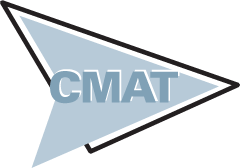Project Details
17-613, TR-727
06/01/17
10/31/19
Iowa Department of Transportation
Iowa Highway Research Board
Researchers
Hyung Seok "David" Jeong
Sree Nilakanta
About the research
Determining the optimal time of equipment replacement is challenging, since the cost of maintaining road equipment increases with equipment operation, while the economic value of the equipment decreases. Accurately estimating the optimal replacement time and predicting future costs of road equipment contribute to the effective use of equipment, while avoiding expensive maintenance activities.
This research project developed a data-driven equipment life-cycle cost analysis (LCCA) model that estimates economic life, replacement time, and future costs of motor graders and trucks for Iowa counties. The current practice of equipment management in Iowa counties was studied by conducting a survey and a follow-up interview. Historical equipment management data for motor graders and trucks were explored to perform regression analysis and derive equipment cost estimation models.
A spreadsheet-based tool was also developed to capture equipment data and provide cost estimation and optimal replacement time. The tool has two modules: (1) deterministic analysis that captures single values as inputs and provides one-point estimation and (2) stochastic analysis, in which a range of values is captured and Monte Carlo simulation is used to provide a range of values as results. The stochastic analysis provides insights about the effect of uncertainties associated with variables to more realistically reflect actual practice. The tool considers both purchasing and leasing options to be applicable for counties that use each method of equipment acquisition.
The research also proposed a template for equipment data record keeping that meets LCCA requirements and allows counties to improve their data collection practices, which can enhance equipment planning over time. The output of this project not only allows Iowa county engineers to support their equipment decisions but also can be used as an example of equipment LCCA for other public agencies.
